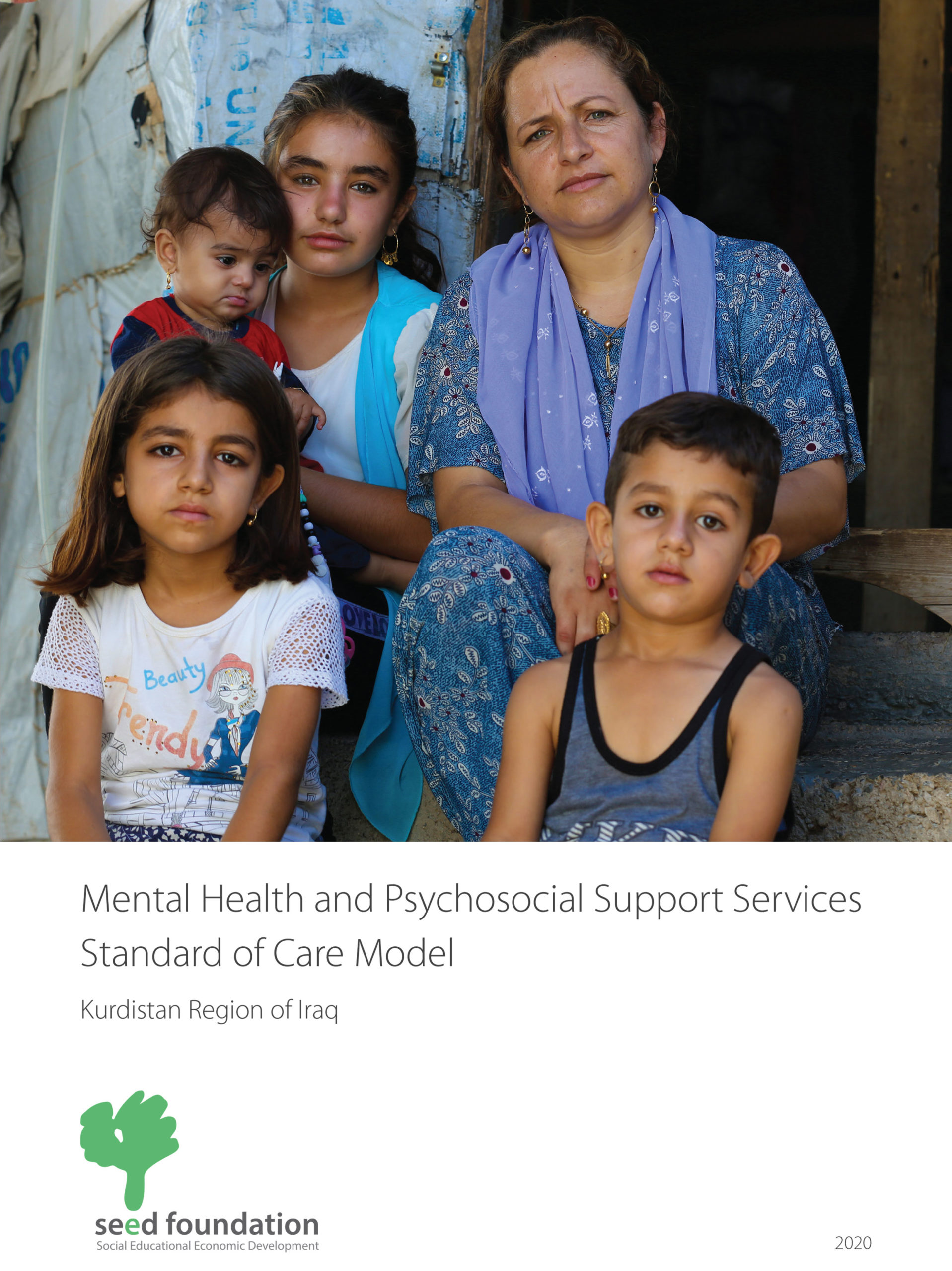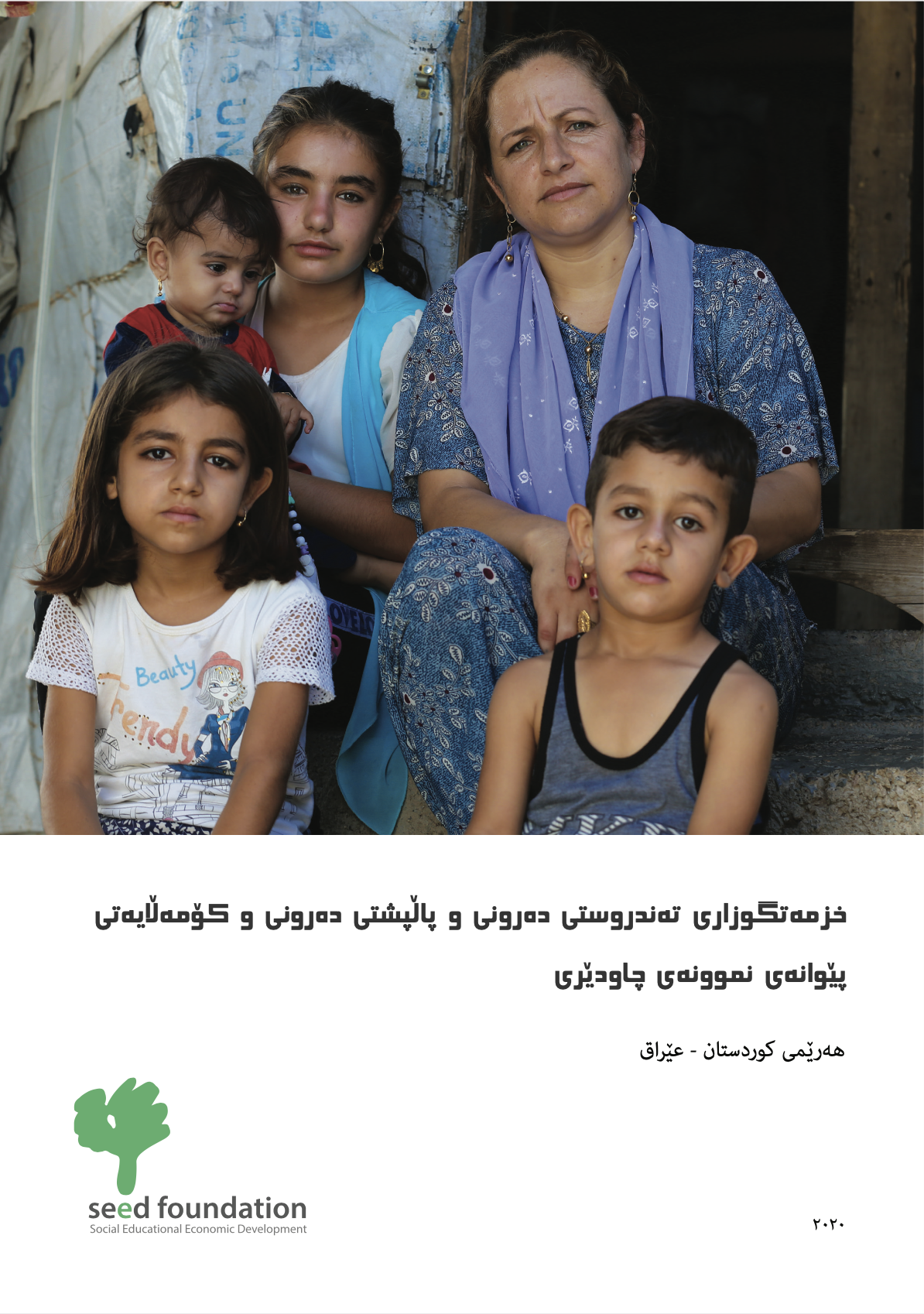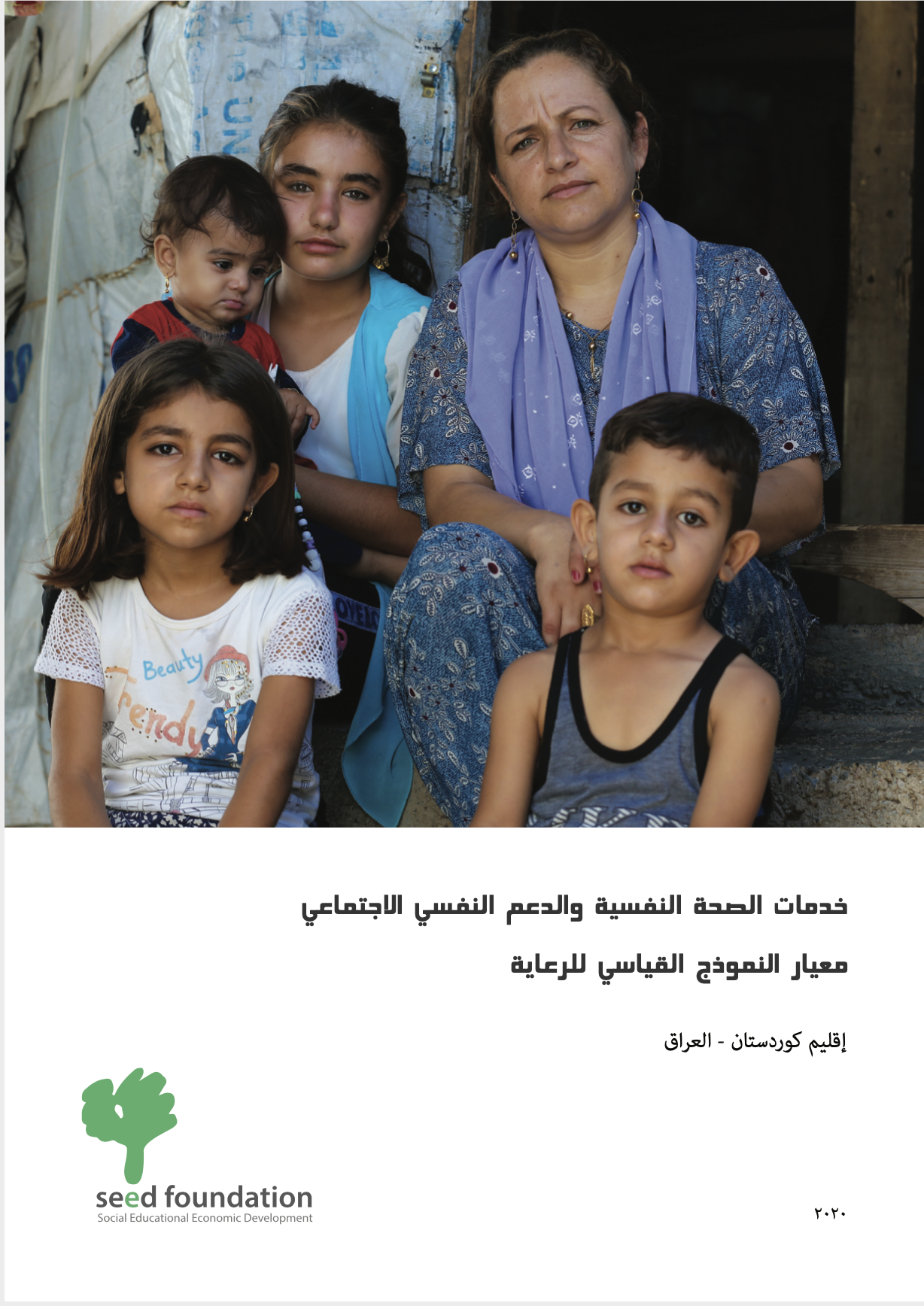To promote improved services to some of the most vulnerable and violence-affected people in the world, SEED Foundation worked with a broad range of stakeholders to develop a Mental Health and Psychosocial Support (MHPSS) Standard of Care Model, tailor made for the Kurdistan Region of Iraq (KRI). Delivering high quality services to meet the complex needs of the population in Kurdistan has always been challenging but the COVID-19 pandemic has created even more challenges, underlining the need for sustained investment in comprehensive mental healthcare integrated with social services. We are delighted to launch it on World Mental Health Day 2020, and support the campaign to #InvestinMentalHealth.
SEED is dedicated to improving the conditions and lives of survivors of violence and those at risk in the KRI. In addition to providing direct mental health services, SEED also works to promote sustainable and transformative policy and social changes that will strengthen protections and services and protections for vulnerable people. In line with this objective, SEED has been working on developing a MHPSS Standard of Care Model for KRI since 2018, and has sought technical reviews and conducted consultations with a wide range of stakeholders, with the aim that it would be utilized by the Kurdistan Regional Government (KRG) and all MHPSS actors to achieve greater coordination, quality, and accountability in services.
Kurdistan and Iraq’s decades of conflict and violence have led to a mental health crisis and trauma is widespread in society. The needs are especially high among displaced populations who fled, escaped or were rescued from ISIS, many of who witnessed the murder of family members, experienced extreme violence and torture, and in some cases enslavement and human trafficking. Although in response to the crisis, mental health and psychosocial support services became more available, they remain inadequate in response to the complex and overwhelming needs. Moreover, shame and stigma related to mental health, combined with a lack of freedom of movement for some, makes seeking and accessing support very difficult. There is a continuing and urgent need and demand for high quality MHPSS services by host communities, internally displaced people, and refugees, making the Standard of Care Model even more relevant and especially important, and highlights to need for the MHPSS response in the KRI to transition from emergency response to a more sustainable, long-term, post-conflict response. The SoC Model can contribute to the KRI transitioning to a more sustainable mental health strategy and response to address the growing and long-term needs of the population.
The SoC Model is based on international standards, and has been adapted to the context of the KRI to ensure the highest level of applicability and relevance. Developing it has been a highly collaborative process with a broad range of local and international NGOs, UN agencies and Working Groups in all three governorates, donors, and the KRG as well as other individuals providing feedback, review, and technical input. SEED also reviewed it with the Board Members of SEED’s Center for MHPSS, a education and training center in collaboration with Koya University, which includes the former Ministers of Health, Labor and Social Affairs, and Higher Education, MHPSS experts in the KRG government, leading NGOs, and international experts. As a result it has received broad buy-in and has been voluntarily adopted by the Duhok and Sulaimania MHPSS Sub Working Groups, which help coordinate MHPSS services in the region. The wide adoption and support of the Standard of Care by a variety of actors across the KRI will support the strategic aim to convert short-term emergency interest in MHPSS into momentum for sustainable, long-term mental health and psychosocial care system development in the KRI.
Going forward, SEED will be offering training to organizations and institutions in Kurdistan who want to deepen their commitment to the Standard of Care Model.
SEED is grateful for all individuals, organizations, and agencies who contributed to the MHPSS Standard of Care development. SEED would also like to thank the KRG for their support and recognize the Ministry of Health, and Directorate of Health Dohuk, for their contributions. The development of this document would not have been possible without the financial support of the United States Government.



